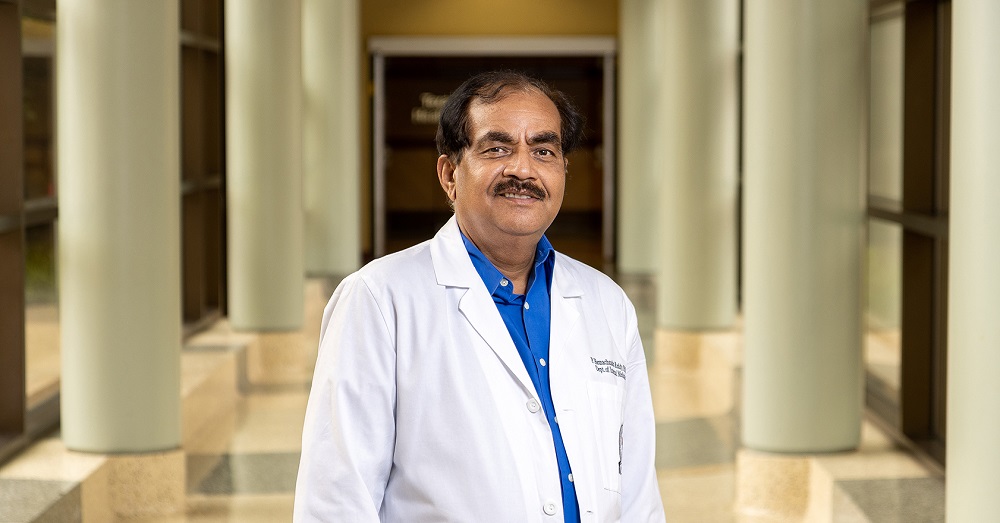
P. Hemachandra Reddy, Ph.D., a professor in the Texas Tech University Health Sciences Center (TTUHSC) School of Medicine’s Department of Internal Medicine who has researched healthy aging, dementia and other neurodegenerative diseases for more than 20 years, recently was named to the 2023 class of Fellows for the National Academy of Inventors (NAI).
The NAI is a member organization comprised of U.S. and international universities and governmental and nonprofit research institutes with more than 4,600 individual inventor members and fellows spanning more than 300 institutions worldwide. Its 2023 Fellowship class includes 162 academic inventors from 35 U.S. states and 10 countries.
Reddy has received three patents for his lab discoveries that promote healthy aging and identify mechanisms to detect and slow the progression of human Alzheimer’s disease. He has several other patents pending.
“I am honored and humbled to join the class of 2023 National Academy Inventors Fellowship; indeed, this honor means a lot to my lab members and me for the recognition of our research efforts,” Reddy said. “Personally, it is a dream come true to be an NAI Fellow. TTUHSC and Texas Tech University are great places to make impactful changes to our communities with new discoveries and inventions in healthy aging and dementia research. I sincerely thank all the lab members, particularly Chandra Kuruva, Ph.D., Subodh Kumar, Ph.D., and Murali Vijayan, Ph.D., for their efforts and contributions to the three patents.”
Academic inventors and innovators are nominated to the rank of NAI Fellow status by their peers for making outstanding contributions to innovation in areas such as patents and licensing, innovative discovery and technology, significant impact on society and support and enhancement of innovation. Nominees also must be a named inventor on patent(s) issued by the United States Patent and Trademark Office and affiliated with a university, non-profit research institute or other academic entity to qualify.
“Dr. Reddy is the second faculty member in the history of our university to receive the highest professional distinction awarded solely to inventors,” Lance R. McMahon, Ph.D., TTUHSC senior vice president for research and innovation, said. “NAI Fellows demonstrate a prolific spirit of innovation resulting in tangible impacts on society.”
Reddy’s experience and contributions have impacted several TTUHSC schools and departments. In addition to his role in the Department of Internal Medicine, he also serves as a professor in the Department of Pharmacology and Neuroscience at the School of Medicine, TTUHSC’s Julia Jones Matthews School of Population and Public Health, the TTUHSC Graduate School of Biomedical Sciences and the Department of Speech, Language and Hearing Sciences in the TTUHSC School of Health Professions.
Reddy has published more than 260 peer-reviewed articles related to Alzheimer’s disease and mitochondria research. According to the Google Scholar website, his articles have been cited more than 29,200 times with an h-index of 89 and an i10-Index of 195. The h-index is used to measure a researcher’s scientific productivity and the impact of their research upon science. The i10 index is the number of publications a researcher has produced that have received at least 10 citations.
Reddy was elected a Fellow of the American Neurological Association in 2014 and a Fellow of the American Association for the Advancement of Science in 2020. Though the accolades and recognition are gratifying, Reddy believes groups like the NAI are valuable because of the relationships and opportunities that come from meeting and learning from other scientists.
“It is amazing to watch and be a part of how biological and human science is moving forward,” Reddy said. “I sincerely thank all my current and former lab members for their dedicated efforts, and I appreciate my collaborators and peers who supported me all through my research career. Most of all I thank my parents and family members for their support and for understanding my passion for Alzheimer’s science.”
